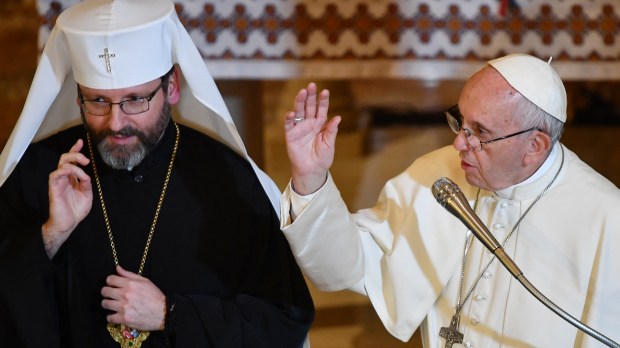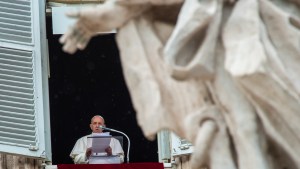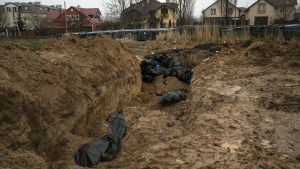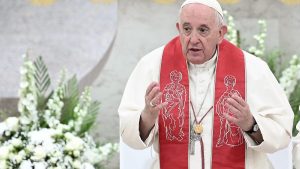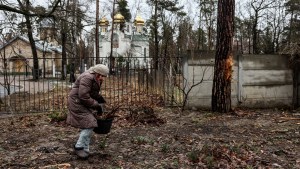Ukraine cannot negotiate with Russia as long as Moscow treats its neighbor as a colony to be subjugated, the leader of Ukraine’s Byzantine Catholic Church told Pope Francis at the Vatican today.
Major Archbishop Sviatoslav Shevchuk of Kyiv-Halych, who leads the largest Eastern Catholic Church in communion with Rome, met with the Pope on Monday, just after the Pontiff returned from an apostolic visit to Bahrain.
According to a press release from the major archbishop’s office, the Pontiff reiterated the Holy See’s commitment to end the fighting and find a way to obtain “a just peace.”
“The war in Ukraine is a colonial war, and the peace proposals coming from Russia are colonial appeasement proposals,” the archbishop told the Pope, according to his office. “These proposals involve the denial of the existence of the Ukrainian people, their history, culture and even the Church. It is the denial of the very right to the existence of the Ukrainian state, recognized by the international community with its sovereignty and territorial integrity.”
Last month, Pope Francis for the first time directly asked Russian President Vladimir Putin to stop the “spiral of violence and death” in Ukraine and asked Ukrainian President Volodymyr Zelenskiy to be open to any “serious peace proposal.”
On Monday, Francis reiterated his closeness to the Ukrainian people and encouraged the major archbishop and his fellow bishops to carry out “an evangelical service of closeness to the suffering people,” the Ukrainian Church said.
Shrapnel
During Monday’s meeting, Archbishop Shevchuk presented the Pope with an encased piece of shrapnel from a Russian landmine that was used in the eight-month war in his nation. The explosion destroyed the front of a Ukrainian Greek Catholic church in the town of Irpin, outside Kyiv, in March.
According to a press release from the Ukrainian Church, the fragment was “a very symbolic gift, not only because Irpin is one of the first ‘martyr towns’ affected by Russian aggression against Ukraine, but also because such pieces of landmine are extracted from the bodies of Ukrainian soldiers, civilians and children, a visible sign of the destruction and death that war brings every day.”
Irpin was the site of one of the first major battles after the invasion, resulting in a Russian occupation and the death of between 200-300 civilians. Ukrainian forces recaptured the town on March 28.
Russian “humanism”
On his trip back from Bahrain, Pope Francis commented on the “cruelty” of attacks on Ukrainian civilians, but suggested this cruelty was not coming from the Russian people, “because the Russian people are a great people. It is of the mercenaries, of the soldiers who go off to war as an adventure, mercenaries. … I prefer to think of it this way because I have high esteem for the Russian people, for Russian humanism. Just think of Dostoevsky, who to this day inspires us, inspires Christians to think of Christianity.”
Ukraine’s ambassador to the Holy See, Andrii Yurash, took issue with those sentiments. In a tweet, Yurash said that orders to bomb Ukraine, including the country’s civilian infrastructure, leaving millions of people without heat and electricity, are not given by mercenaries but by Russian “humanists,” an apparent sarcastic reference to Putin and his generals.
Archbishop Shevchuk is also meeting with members of the Roman Curia this week. The Rome visit is only his second venture outside Ukraine since the February 24 Russian invasion. He had visited Poland in July for the annual gathering of the Synod of Bishops of the Ukrainian Greek Catholic Church. Shevchuk has said that he wants to stay with his people in his war-ravaged nation.
